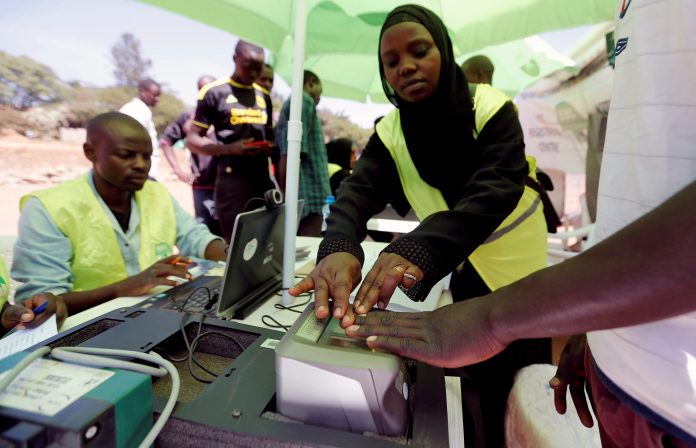
The High Court will rule on Thursday whether or not the IEBC will use the KIEMS kit as the sole mode of voter identification in the August elections.
Several lobbying groups have challenged the Independent Electoral and Boundaries Commission’s (IEBC) decision to use the KIEMS kit.
Today, the petitioners in the case argued that technology is vulnerable to attack and that relying on the kits puts voters at risk of being disenfranchised in the event of a technological failure.
The IEBC’s attorney, Edwin Mukele, disagreed and argued that the commission acted legally in making its decision, adding that the IEBC can only approve the deployment of printed registers.
In opposition to the petition, UDA’s attorney Elius Mutuma argued that the commission is independent and not subject to orders from parties.
The seven lobby groups have petitioned the court to order the IEBC to provide a manual voter register at each polling place.
They contend that the commission’s and its chair Wafula Chebukati’s decision violates the statute and also has a high chance of failure, which could ultimately result in the postponement of the general election.
Mutuma pleaded with the court to exercise extreme caution in order to avoid appearing to affect the IEBC’s independence.
Because all the voter data is already preloaded in the KIEMS kit and can be retrieved even without internet connectivity, he argued, KIEMS kits do not require internet connectivity for voter identification.